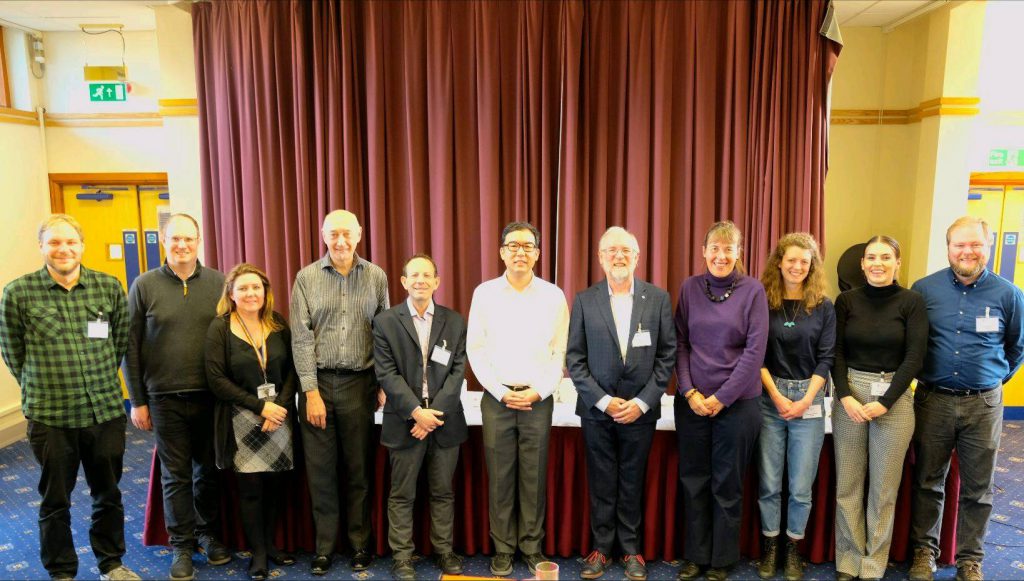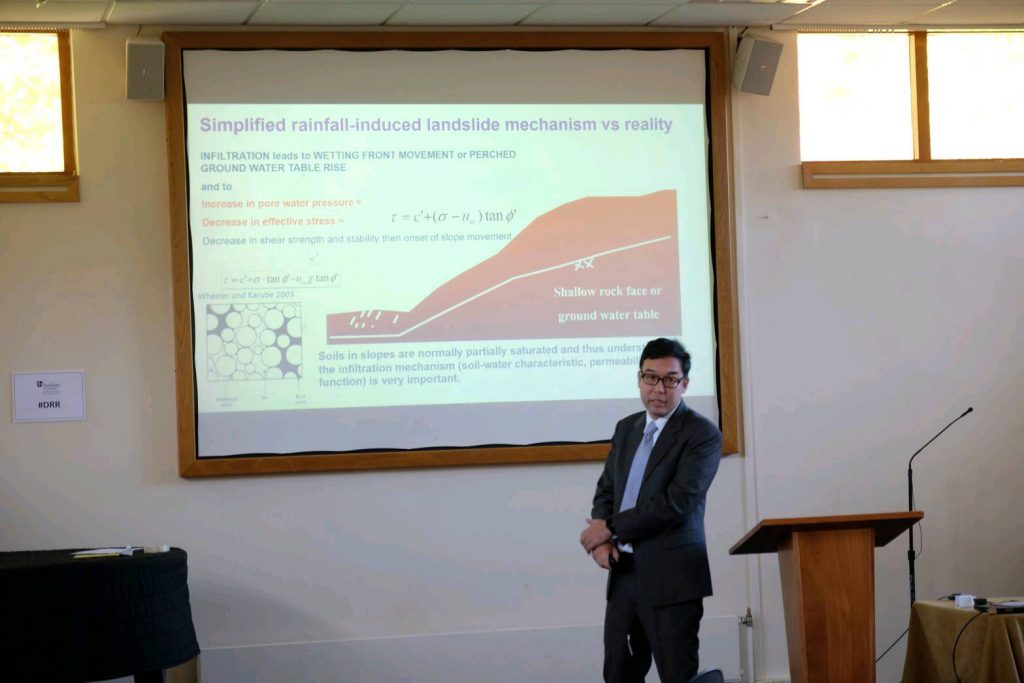
Assoc. Prof. Dr. Apiniti Jotisankasa from Department of Civil Engineering has been invited as a keynote speaker for the Institute of Hazard, Risk and Resilience (IHRR) Annual Workshop and Lectures to support the International Day of Disaster Risk Education on 12-13 October 2022 at Van Mildert College, Durham and via Zoom. His lecture topic was “Bio-slope engineering: a community-led nature-based solution for sustainable slopes in Thailand”
“Before and After: Building Resilience to Manage Disasters and Save Lives” was the theme for this year. The conference brought together a variety of viewpoints from several disciplines to discuss how to plan for a resilient future while addressing a number of hazards and their associated risks. Multiple forms of resilience building were considered – including hazard mapping, spatial planning, early warning systems and policy change – as well as opportunities to improve the initial emergency response and subsequent rebuilding of communities and infrastructure.

Dr. Apiniti also mentioned about this participation that “…It has been one of the most inspiring conferences I have joined in many years. The Institute of Hazard, Risk and Resilience (IHRR) conference has been very successfully organised. All the speakers and discussion were brilliant and the multidisciplinary approach of IHRR is a remarkable example of what should be done in terms of hazard and resilience research. It has been an utter priviledge to be able to give a keynote lecture on “soil bioengineering: a community-centered, nature-based solution for sustainable slopes in Thailand” In particular, I am deeply honoured to share the experience in relation to our works with the royal initiatives projects like vetiver grass and agriculture in highland to the international community to commemorate the anniversary date of our beloved King Bhumibol’s passing.”
Institute of Hazard, Risk and Resilience is a world-leading research institute in hazard, risk and resilience based at Durham University. The organization support innovative research and training for use in policy and practice, collaborating directly with communities, Non-governmental organisations (NGOs) and governments. The research encompasses a range of academic disciplines, including the physical and social sciences, the arts and humanities, but also as wide a range of stakeholders.
![]()
